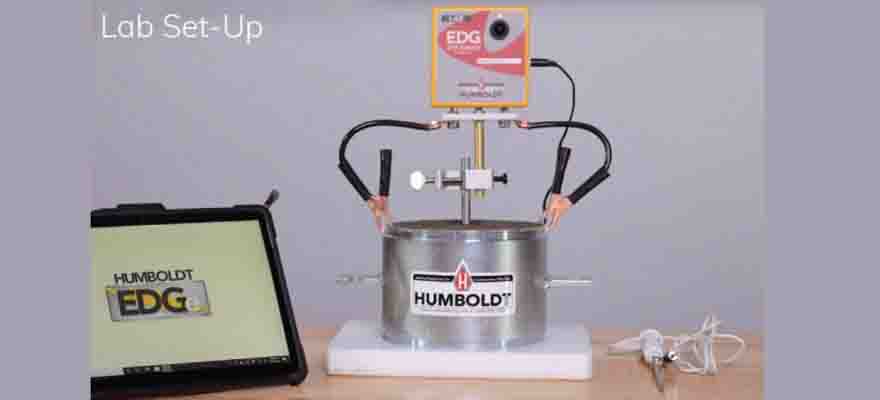Top 10 Essential Field Testing Equipment for Engineers
Top 10 Essential Field Testing Equipment for Engineers
Field engineers are the backbone of construction, geotechnical, and civil infrastructure projects. Their work demands accuracy, reliability, and precision in evaluating the performance and safety of materials and structures. Field testing equipment plays a crucial role in providing data-driven insights that ensure projects meet design, regulatory, and safety standards. Here’s a rundown of the top 10 essential field testing equipment that every engineer should be familiar with.
1. Field CBR Test Set
The California Bearing Ratio (CBR) test is fundamental for evaluating subgrade strength in road construction. A Field CBR test set is vital for engineers to determine soil strength and load-bearing capacity directly at the site. It helps in designing appropriate pavement thickness and ensuring long-term durability. This equipment allows quick on-site testing, reducing downtime and enabling rapid decision-making in field conditions.
2. Rock Fracture Test Apparatus
Geological and mining engineers rely heavily on rock strength data to assess the integrity of rock formations. The Rock Fracture Test apparatus provides critical insights into fracture propagation, stress conditions, and hydrofracturing properties of rock. This testing equipment helps prevent structural failures in tunneling, mining, and foundation works by offering real-time data on rock behavior under pressure.
3. Pressure Aging Vessel (PAV)
For highway and pavement engineers, simulating the long-term aging of asphalt binders is critical for predicting pavement performance. A Pressure Aging Vessel is used to replicate aging in asphalt samples under pressure and elevated temperatures. This tool helps engineers anticipate material behavior over years of traffic and environmental stress, improving mix designs for enhanced lifespan.
4. Marshall Stability Equipment
Asphalt pavement quality control demands precision. Marshall Stability Equipment enables engineers to measure the load and flow values of asphalt mixes. The test results are used to assess the stability and plasticity of bituminous materials, ensuring compliance with construction standards. This equipment is a staple in highway labs and field stations.
5. Pile Foundation Testing Equipment
Pile foundations must be thoroughly tested for load-bearing capacity, structural integrity, and ground response. Pile Foundation Testing equipment allows engineers to perform both static and dynamic tests to validate the performance of piles before construction progresses. It ensures that foundational support meets safety requirements, particularly in high-rise buildings, bridges, and offshore structures.
6. Automatic Consolidation Test Apparatus
Soil consolidation testing helps engineers determine settlement characteristics under sustained loads. The Automatic Consolidation Test Apparatus automates this process, offering high accuracy and minimizing human error. This tool is invaluable in large infrastructure projects like embankments, retaining walls, and dams, where soil behavior over time is a critical design consideration.
7. Metal Beam Crash Barrier Testing Equipment
Highway safety is a top priority, and testing the reliability of crash barriers is vital. A trusted Metal Beam Crash Barrier Supplier provides tested equipment to evaluate the impact performance of barriers. Engineers must ensure that the barrier design can absorb vehicular impact and redirect it safely to prevent fatal accidents.
8. W Beam Crash Barrier Testing
Similar to metal beam barriers, W Beam Crash Barrier Suppliers offer solutions specifically designed for roadside safety. Field testing ensures that the barrier systems comply with international crash testing standards. Engineers use these test results to implement safety systems on highways, flyovers, and industrial complexes.
9. Soil Permeability Testing Kit
Understanding the permeability of soil is essential for drainage design, slope stability, and foundation planning. Permeability testing kits are designed to be portable and accurate, giving engineers quick insights into water movement through soil. These kits are especially useful in flood-prone and water-logged areas where proper drainage can mean the difference between structural failure and long-term success.
10. Dynamic Cone Penetrometer (DCP)
For rapid assessment of soil compaction and strength, the Dynamic Cone Penetrometer is a field favorite. It provides immediate feedback on subgrade conditions, allowing engineers to make real-time adjustments during construction. The DCP is particularly valuable in remote or rural projects where lab facilities are not readily accessible.
Conclusion
In the ever-evolving field of civil and geotechnical engineering, having the right tools on-site can make or break a project. From assessing asphalt mix stability using Marshall Stability Equipment to ensuring roadway safety with certified W Beam Crash Barrier Suppliers, each piece of equipment serves a unique and vital purpose.
Reliable field testing equipment not only improves construction quality but also enhances safety, reduces long-term maintenance, and ensures compliance with regulatory standards. As technologies continue to advance, engineers must stay updated with the latest tools to meet the growing demands of modern infrastructure.
Are you currently working on a project that involves field testing equipment?












